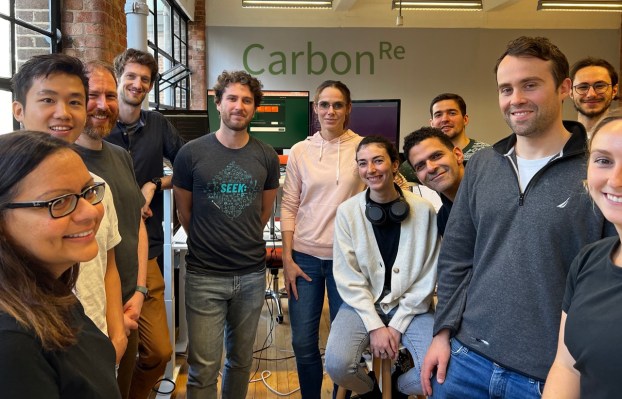Carbon Re spins out of academia-land to take on cement pollution • TechCrunch

Spinning out of top U.K. universities Cambridge University and UCL, Carbon Re just raised £4.2 million ($4.8 million) in a bid to tackle the gigatonnes of carbon emissions spewing forth from the traditional thorn-in-climate-change-side cement industry.
The company says it is building state-of-the-art AI to decarbonize energy-intensive industries. It claims that its “Delta Zero AI” platform could potentially reduce more than 50 kilotonnes of CO2 emissions per plant. The company tells me that its SaaS solution “models the unique production environment of each plant and uses advanced machine learning and AI techniques to achieve previously out-of-reach operational efficiencies.” Delta Zero continuously analyzes manufacturing data to enable plant operators to optimize production processes on a near-live basis, although it doesn’t specifically describe what changes the algorithms suggest in order to achieve these cuts in emissions.
“At a time of escalating fuel prices and increasing emphasis on CO2 reduction targets, there is an urgent need for action. Carbon Re is connecting the biggest challenge of our time – climate change – with the biggest opportunity – advances in AI,” said Sherif Elsayed-Ali, CEO of Carbon Re, in a statement to TechCrunch. “Our platform provides a unique solution for energy-intensive industries that delivers £2 million in fuel cost savings and 50,000 tonnes of CO2 savings per plant. This latest funding round will enable us to accelerate our mission to reduce carbon emissions by gigatonnes every year.”
Planet A Ventures, a Berlin-based climate tech venture capital firm, led the £4.2 million round, with participation from Clean Growth Fund, UCL Technology Fund and Cambridge Enterprise. The new investment will enable Carbon Re to focus on rolling out its product to the global cement market. The next target the company has set itself is to expand into other energy-intensive industries, such as steel and glass.






